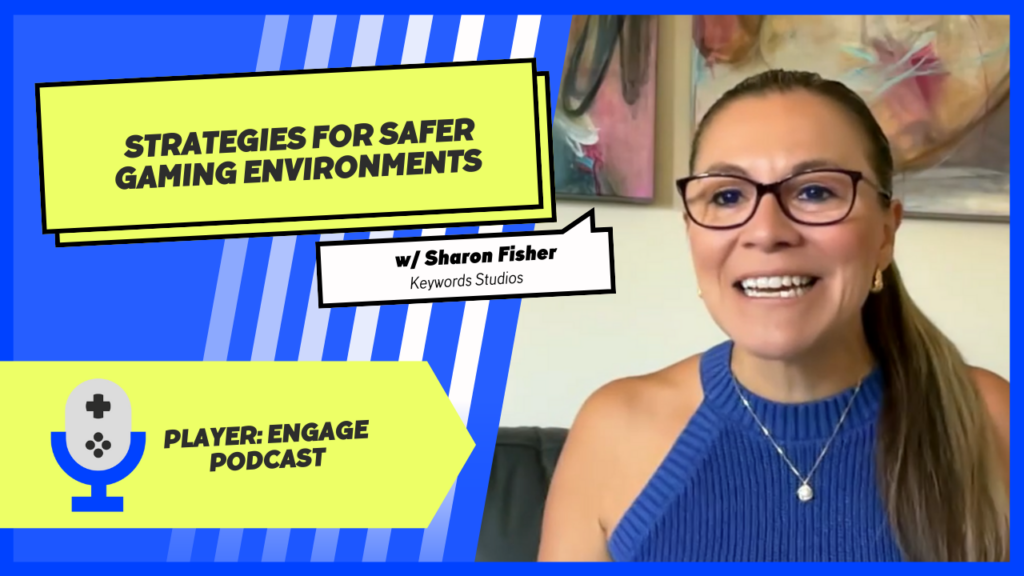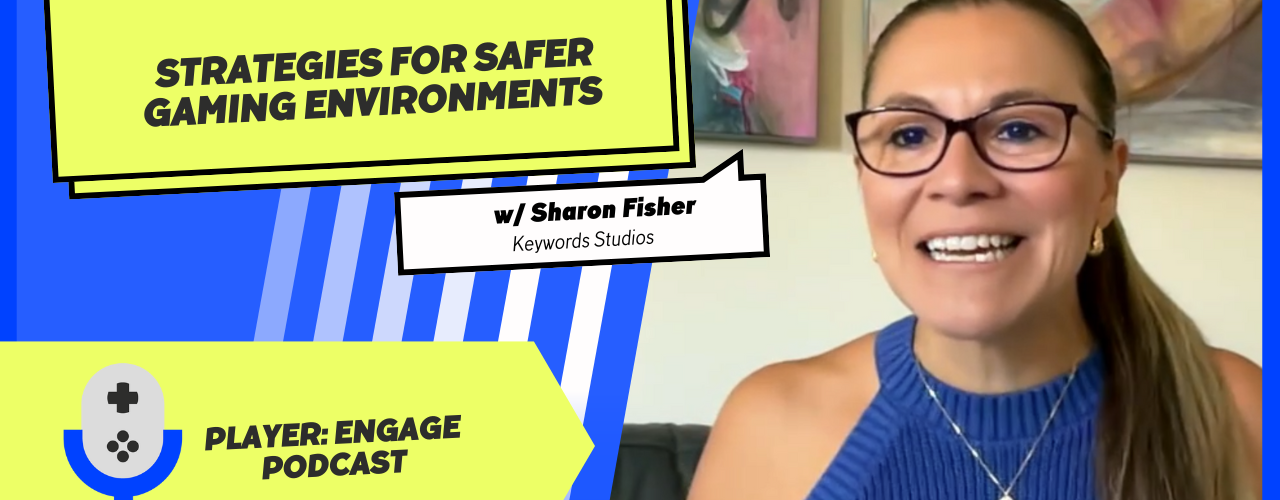About This Episode
View on Zencastr
In our latest episode of the Player Engage Podcast, we had the pleasure of speaking with Sharon Fisher, Head of Trust and Safety at Keyword Studio. Sharon brought her wealth of experience and passion for creating safe gaming environments to our discussion, offering invaluable insights and practical tips for developers and gaming studios. If you missed the episode, here are the key takeaways that can help you enhance trust and safety within your gaming community.
Key Takeaways:

1. Emphasize Player Well-Being: Sharon highlighted the importance of prioritizing player well-being. Whether it’s for brand protection or community safety, putting the well-being of gamers first is crucial. By ensuring a safe and supportive environment, developers can foster a positive community where players feel valued and protected.
2. Implement Preventive Measures: Proactive moderation is essential in today’s gaming landscape. Sharon discussed how utilizing technology to detect potential threats early can make a significant difference. By implementing preventive measures, such as monitoring voice chats, texts, and images for harmful content, developers can act swiftly to mitigate risks and maintain a safe environment.
3. Incentivize Positive Behavior: Rather than focusing solely on punishing negative actions, Sharon advocated for rewarding positive engagement within the community. By incentivizing good behavior, developers can encourage players to contribute positively, creating a healthier and more enjoyable gaming experience for everyone.
4. Address Community Needs: Effective communication with the gaming community is vital. Sharon emphasized the importance of regularly engaging with players to understand their needs and concerns. By listening to the community and adapting accordingly, developers can build trust and foster a sense of belonging, ensuring that players feel heard and valued.
5. Collaborate Early and Often: One of the most critical points Sharon made was the need for early and ongoing collaboration between developers and community managers. By working together from the start, teams can integrate safety features seamlessly into the game design. This proactive approach ensures that potential issues are addressed before they escalate, saving time and resources in the long run.
6. Leverage Free Tools: Sharon also highlighted the availability of free tools for preventive moderation. These tools can be incredibly useful for small teams with limited budgets. By starting with these resources, developers can quickly implement safety measures and scale up as their community grows.
Conclusion:
Our conversation with Sharon Fisher provided a wealth of practical advice for enhancing trust and safety in gaming. By emphasizing player well-being, implementing preventive measures, incentivizing positive behavior, addressing community needs, collaborating early, and leveraging free tools, developers can create safer and more enjoyable gaming environments.
For more detailed insights and to hear the full discussion, be sure to listen to the podcast episode here. Let’s work together to make gaming safer for everyone!
Call to Action:
We’d love to hear your thoughts on trust and safety in gaming. How are you implementing these practices in your own games? Share your experiences and join the conversation in the comments below. Don’t forget to subscribe to the Player Engage Podcast for more expert insights and industry discussions!





